Why animal lovers' 'kind act' may be killing Australian birds
While many Australians delight in feeding their neighbourhood birds, wildlife experts warn people could be killing them with “kindness”.
Many Facebook groups are littered with photos of people feeding meat to their “feathered friends”, and frustrated wildlife carer Simon Adamczyk has issued a plea for people to stop.
“I was really shocked by how many people fed magpies mince just by itself,” he told Yahoo News Australia.
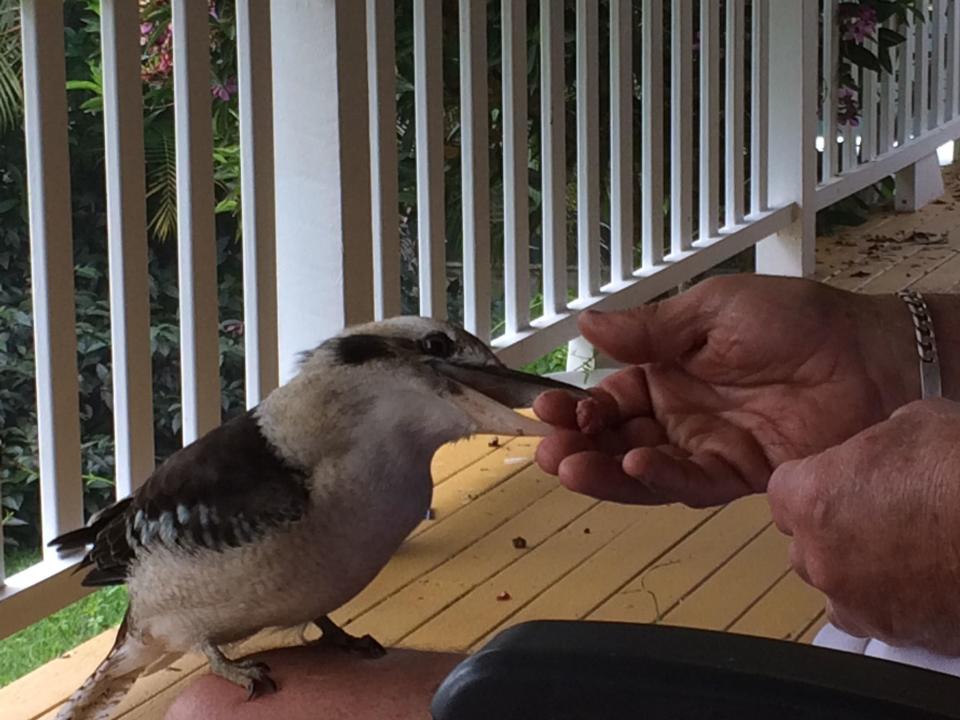
Last year, the South Australian wildlife expert treated 25 birds suffering from illnesses he could see were directly linked to well-meaning people feeding them what is “essentially junk food”.
Mr Adamczyk compared feeding a magpie 50 grams of mince meat to a human eating two hamburgers and two servings of fries.
“People think they’re doing the right thing, but they really are just malnourishing these animals,” he said.
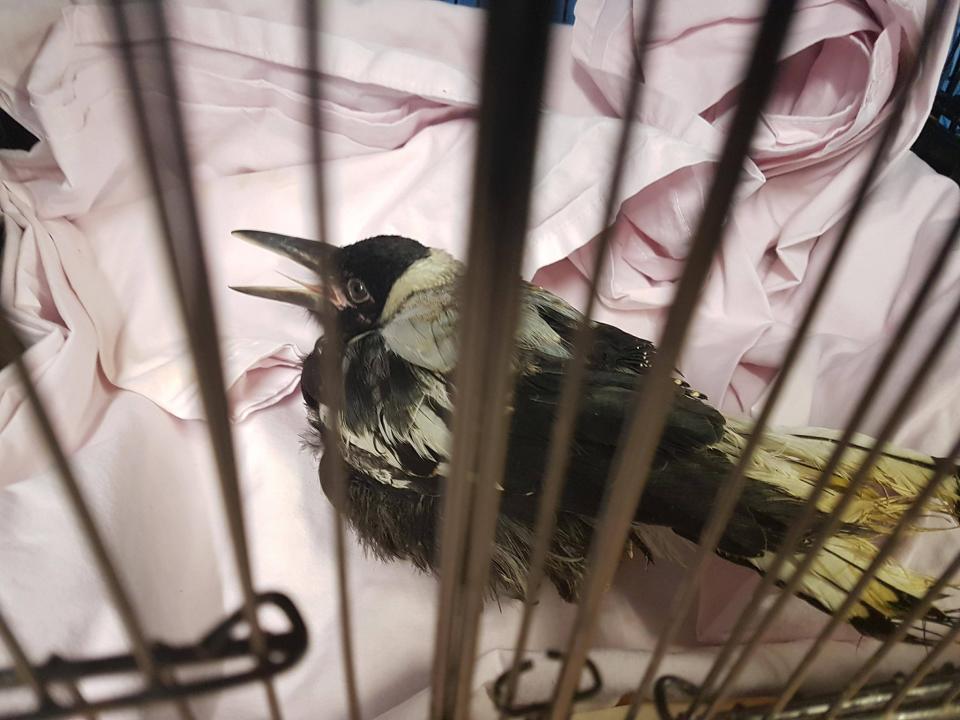
‘Generous’ act cuts short the lives of Squeak and Casper
After 17 years working with wildlife, Mr Adamczyk has seen a lot of pain and suffering, but it was the preventable deaths of two young magpies he named Squeak and Casper that broke his heart, and motivated him to speak out.
His first step was to post images online of the two young birds who he says became sick due to poor diet.
“To get the impact across you have to show them something graphic,” he said.
“It’s not really the nice way of doing it, putting up an image (on social media) of an animal suffering.”
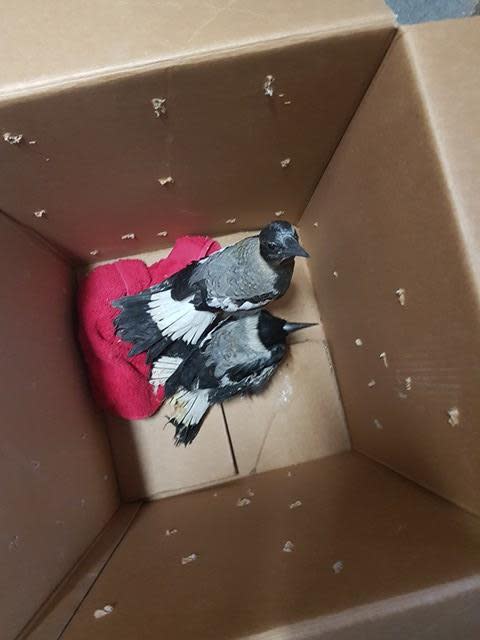
Juvenile magpies, Squeak and Casper, were both gravely ill when they were surrendered, and the kindest thing Mr Adamczyk could do was see that they were humanely euthanised.
“One was an attempted pet so they clipped its wings to absolute hell,” he said.
“The other one was a wild bird, it couldn’t close its mouth, it couldn’t feed itself, it couldn’t drink.”
Mr Adamczyk estimates that an average sized school oval provides enough worms and insects to feed a family of 10 magpies comfortably, but when people feed them mince, they develop bone and feather abnormalities due to lack of calcium.
“Usually what happens is that the parents go great and they feed it to their babies,” he said.
“As soon as they start walking, they break their legs.
“If they break their legs that’s it for them - especially in the wild.”
Once the birds are brought into care, they are usually beyond recovery, with Mr Adamczyk estimating 90 per cent are euthanised.
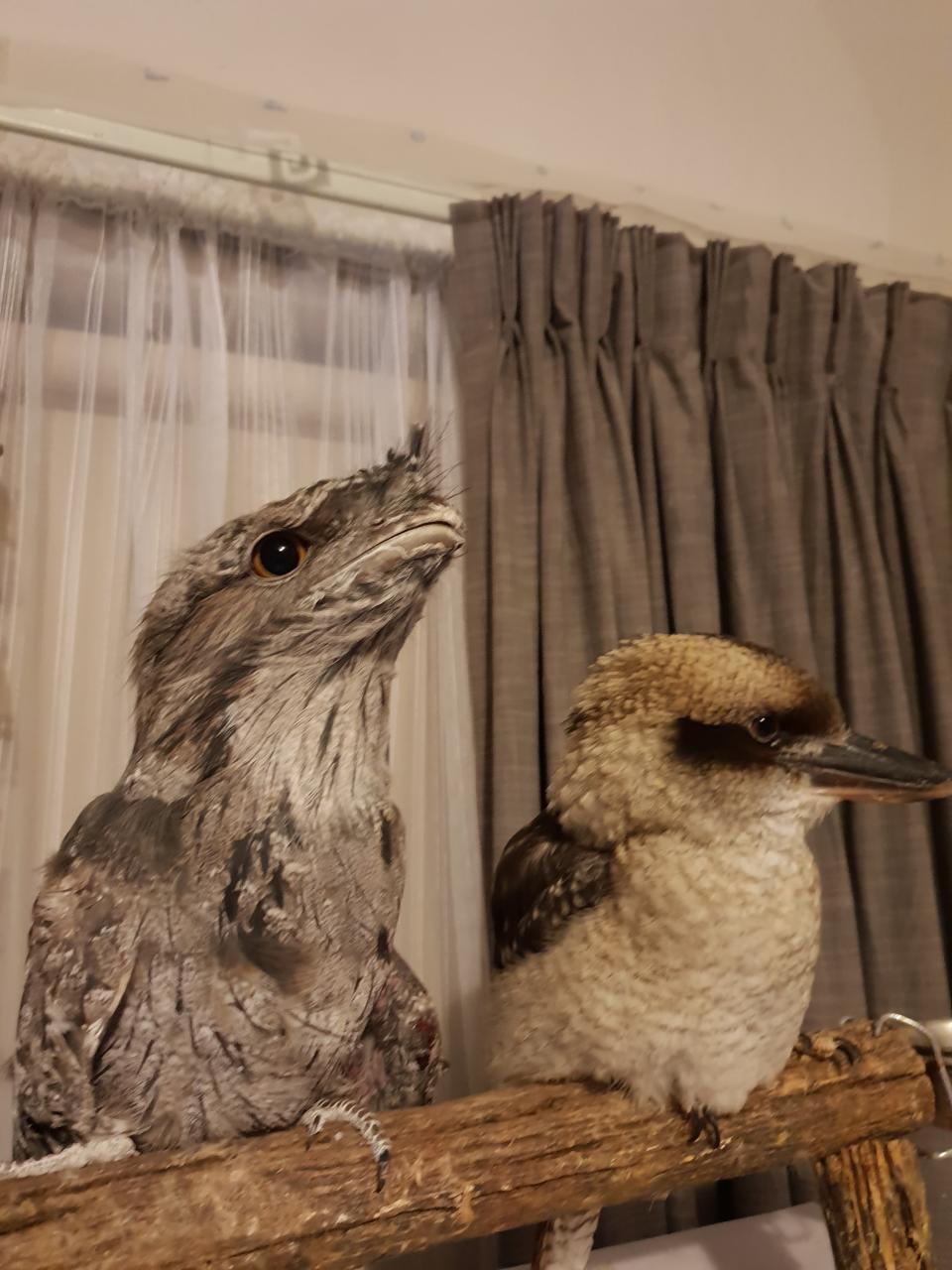
Running a wildlife education business, Animal Relocation and Education, Mr Adamczyk has licences to keep unreleasable birds in care, which he feeds a balanced diet of whole animals including mice, day old chicks and insects.
He recommends that anyone wishing to interact with birds should put out water bowls instead of feeding them.
Making friends with magpies
Australian Magpie Facebook group member Michelle Smith believes her magpies are not harmed by her feeding, telling Yahoo News Australia that the ones she interacts with are in good condition.
“We feed a whole range of birds here Lorrikeets, Correllas, Magpies, Kookaburras, Pigeons, Currawongs, Butcher Birds and many more they come every morning,” she said.
“We just love it some of the antics they get up to have us laughing all the time we feed them mince, wild bird seed and bread and honey.
“Our magpies have been coming for over six years and we still have mum and dad with many offspring.”
“(They’re) very noisy and demanding - I think if we didn’t feed them they would break the door down,” she said.

Officials warn against feeding wildlife
Dr Phil Sacks from Birdvet Melbourne told Yahoo News Australia that a lot of his clients feed birds mince, and people wishing to do so should add supplements.
“Mince is not a complete diet,” he said.
Common supplements for kookaburras and magpies in care include Insecta Pro and Insectivore, with different birds required other nutritional additives.
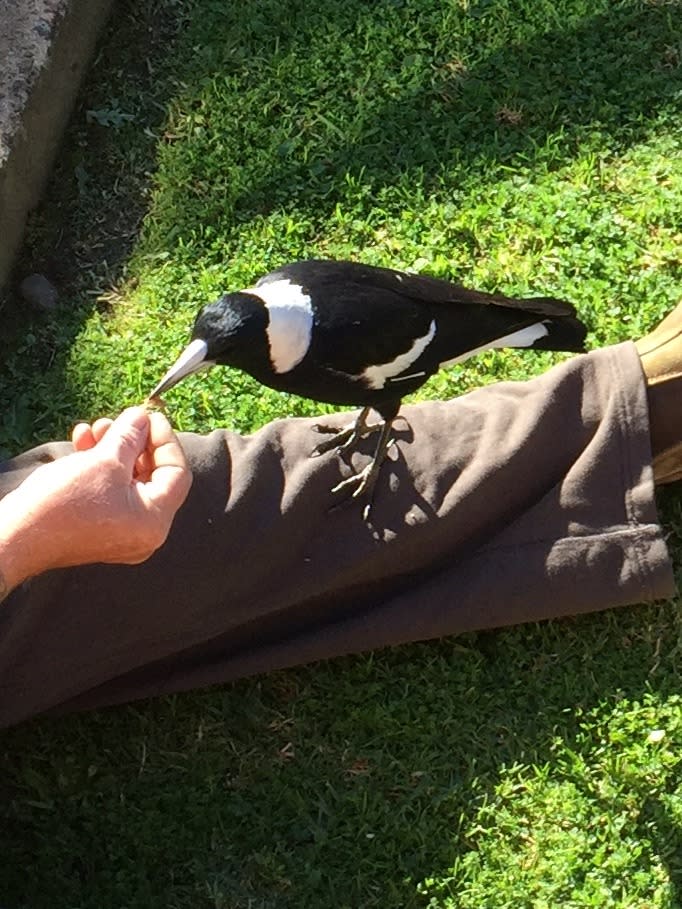
Wildlife feeding guidelines differ in each Australian state, but a NSW Department of Environment spokesperson urged people to refrain from the practice.
“Feeding and watering wild animals, including birds, is not recommended as it may result in future problems for both the animal and people; it can increase risk to the animal, can lead to health problems and displace other native species,” he said.
“Most people feed birds and other native wildlife out of a desire to want to care for them, however this can quickly lead to a build-up in numbers and animals that expect to be fed/watered can become aggressive and harass people.”
Do you have a story tip? Email: newsroomau@yahoonews.com.
You can also follow us on Facebook, download the Yahoo News app from iTunes orGoogle Play and stay up to date with the latest news with Yahoo’s daily newsletter. Sign up here.


